Israeli society and culture have deep Jewish and Zionist roots that include the Torah, peoplehood, desire to return to the Land of Israel, resistance against hostile forces and reliance upon one another.
Embedded in Zionism is a yearning to be creative in arts and literature and to remake the Jewish people and individual (the “new Jew”). Jews returning to the Land of Israel from locations around the world brought particular cultural habits, political philosophies, economic outlooks, music, literature and religious attitudes. The variations of Zionism under in the time of Theodor Herzl were as numerous as the definitions of Israeliness today. Rather than evolve a one-size-fits-all society and culture, Israelis have maintained and mixed their traditions and outlooks under the broader umbrella of existing as citizens in a Jewish state.
That cultural mix includes the nearly one-quarter of the Israeli population that is not Jewish, including Muslim and Christian Arabs and Druze. Since Israel remains demographically and physically small, external factors enhance or threaten Israel’s future and constantly refine its culture and society. These external factors include changing relationships with neighbors near and far, the evolving international economic and technological order, connections with opinionated Diaspora Jewish communities, and participation in international organizations and competitions such as the Eurovision Song Contest. Also influencing Israeli society are the more than three-quarters of a million Israelis living permanently abroad while maintaining and protecting their identity and their connections to the state.
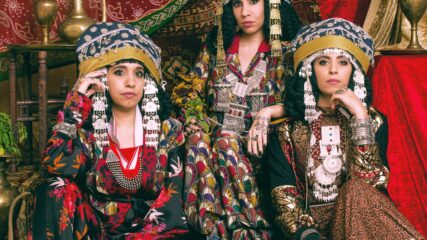
Dr. Eli Sperling, April 15, 2025, for CIE © Center for Israel Education, 2025 Israeli music offers a powerful lens through which we can understand the country’s cultural and political evolution, serving as both a…
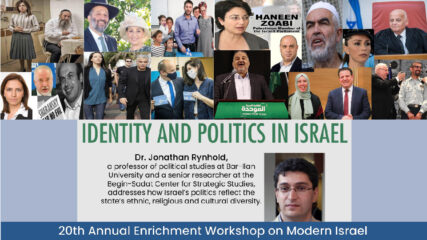
Applying demographic statistics and polling data, Professor Jonathan Rynhold lucidly examines Israel’s politics through the lenses of ethnic, religious, and cultural diversity. He concludes that Israeli society and its political priorities are ever changing, evidenced by the June 2021 formation of Israel’s most ethnically and politically diverse government coalition ever formed.

In this 45-minute video recorded Jan. 11, 2023, scholars of Jewish, Zionist and Israeli art, music and culture discuss how culture not only was a fundamental part of the effort to build a safe Jewish homeland, but was for many the reason behind the modern State of Israel. Featured are Dr. Arieh Saposnik, an associate professor at Ben-Gurion University of the Negev; Dr. Susan Nashman Fraiman, an instructor at the Hebrew University of Jerusalem; and Dr. Eli Sperling, an Israel Institute teaching fellow at the University of Georgia. Moderating the conversation is Center for Israel Education President Dr. Kenneth Stein, professor emeritus of Middle Eastern history and political science and Israel studies at Emory University. This webinar is part of CIE’s Israel@75: A Yearlong Exploration project.
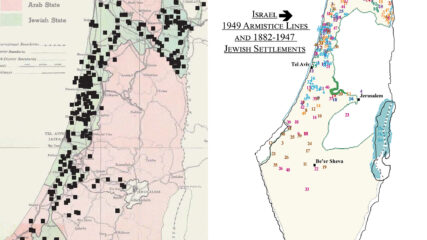
With 20 maps and prose, trace the progression of Jewish physical and demographic growth toward state building from 1882 to 1948 (25,000 to 600,000), with two-thirds in place by 1940.
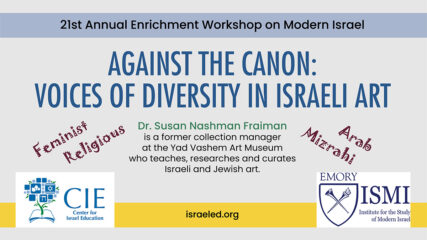
In less than 45 minutes, Israeli educator Susan Nachman Fraiman presents a taste of the variety of voices in Israeli art that have emerged in the past 20 years: female, religious, Mizrahi, Ethiopian and Israeli-Palestinian, all of which are rich subjects in themselves. We examine a few examples of works from each of these sectors and try to understand the rich background from which they come. This video is from a session July 25, 2022, at the 21st annual CIE/ISMI Enrichment Workshop on Modern Israel.
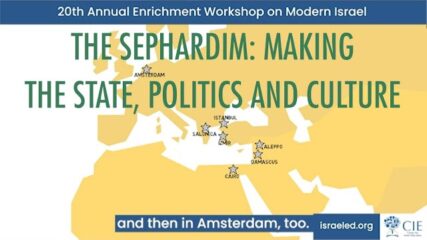
In a 40-minute video recorded June 14, 2021, Dr. Yaron Ayalon of the College of Charleston and Rich Walter of the Jewish Federation of Greater Atlanta delve into the history and the political and cultural…
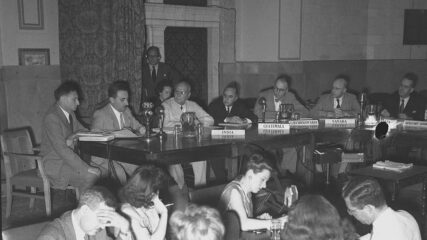
This four-page assessment notes multiple Jewish contributions to Palestine’s development: expansion of health care, advancement of agricultural methods, government revenue, industrial growth and Jewish building expansion. It notes that the Jewish economy has attracted Arab immigration to Palestine for jobs and the mushrooming of the Jewish education system from Jewish sources. Without saying so directly, its contents tout Jewish state building.
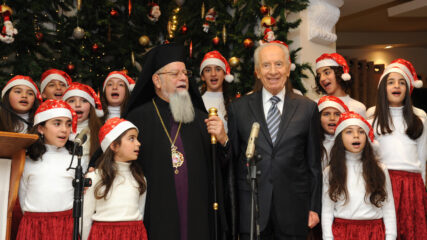
“And I will bless them that bless thee, and him that curseth thee will I curse.” — Genesis 12:3 (verse commonly invoked by Evangelicals in support of Israel) In 1917, General Edmund Allenby was given…
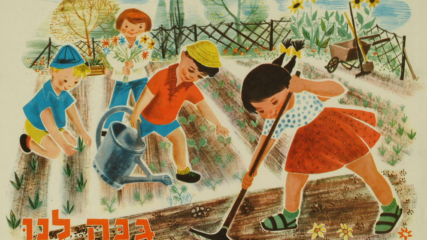
April 14, 2025 The period of the New Yishuv lasted from the last 40 years of Ottoman rule in Palestine through the British Mandate until the establishment of Israel in 1948. It saw the growth…

By Scott Abramson and Ken Stein In his famous 2004 essay “Between Right and Right,” Israel’s most celebrated novelist, Amos Oz, reflects on Israeli society, summing up his fellow citizens with this appraisal: “What we,…
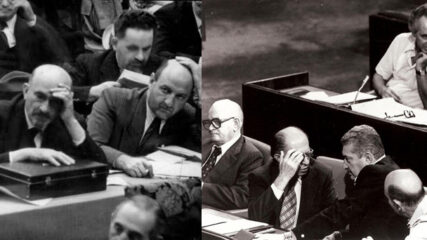
Neither Israel’s political culture nor Israel’s democracy based on Jewish self determination simply materialized on May 15, 1948. A connection exists from Jewish self-rule in the Diaspora to Zionist political autonomy during the Yishuv and to contemporary Israeli political culture. Likewise, the origins of Israeli democracy are found in the hundreds of years of Jewish Diasporas transitioning into the Zionist movement to the state; from aliyot before the Palestine Mandate to 1948 and since. Components of Israeli political culture…

June 30, 2020 Even as Israel, like America, guarantees religious freedom, it has been connected from its inception to Judaism, the religion of the Jewish people. Nevertheless, that connection has been fraught with tension, from…
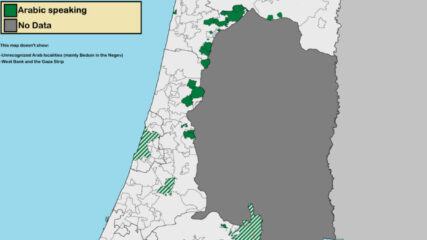
During the May 2021 Israeli-Palestinian clashes, Arab citizens of Israel clashed with Jewish Israelis. By comparison in October 2000, similar clashes were longer, more intense with similar underlying causation. Read the context with the findings of the Or Commission that investigated them.

Israel’s diversity is reflected in the range of responses to four months of war since Hamas and others killed 1,200 people and took more than 240 hostages Oct. 7. Amid many examples: Areas in which…
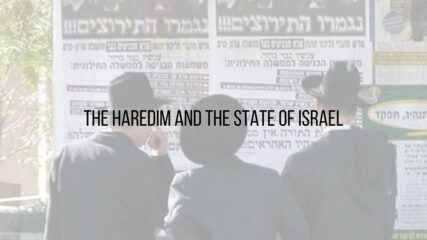
During the 2019 CIE/ISMI Educator Workshop on Modern Israel, Emory University Professor Michael Berger discusses how Hasidism was one of the most important Jewish innovations of its time, the evolution of ultra-Orthodoxy, and the status of Haredim within Israel today.

Dance along as waves of Jewish immigration mix with indigenous traditions to create a unique culture reflecting a world of Jewish and non-Jewish influences across Israel’s diverse society.
















